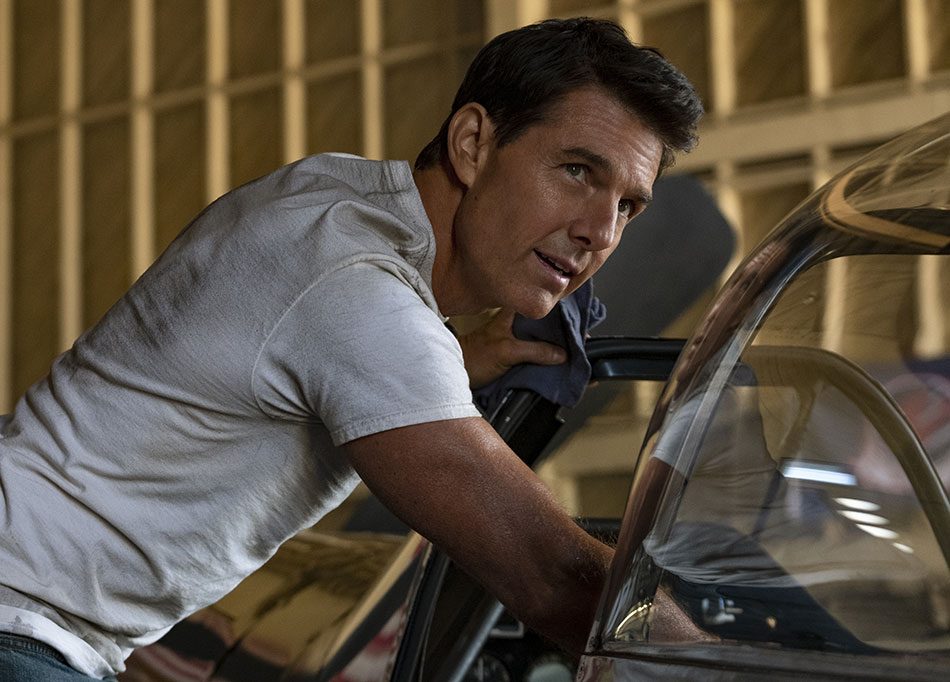
The smarter way to stay on top of the streaming and OTT industry. Sign up below.
You are now subscribed
Your newsletter sign-up was successful
A new survey from the National Research Group revealed that when asked about the actors they’d most like to see in movie theaters, Americans returned a list of well-seasoned thespians, the average age being 57.5.
All but one of the Top 20 are over 40, and that one (Chris Hemsworth) joins the 40-and-up club this summer.

All sorts of reasons have been bandied about for why this is, many of which are interrelated.
Also read: Sony's Tom Rothman: 'Streamers Don't Create Movie Stars, Only Global Hit Movies Do'
There’s the demise of the midcentury monoculture, which means that movies are far less of a cultural touchpoint in 2023 than they were in 1983, when many of the top 20 actors were first getting started.
There’s the rise of “peak TV,” which, coupled with the rise of IP-based movies, means that TV series are more likely to capture the national imagination.
There’s a similar trend in government, where everyone in charge seems to be well over 70.
The smarter way to stay on top of the streaming and OTT industry. Sign up below.
There’s social media, which reinforced that notion that, “Celebrities! They’re just like me and you! Only more famous!” And in doing so, they removed whatever aura of glamor or specialness movie actors once had, turning them into a pack of regular Janes and Joes.
And then there’s the surplus of actors named Chris and actresses named Rachel, which makes remembering which one is which really difficult, especially if you are over 40. (Okay, that one was not really discussed all that much. Or at all. But it’s definitely a reason.)
Add Next TV to your Twitter feed today! Follow @ThisIsNextTV to keep up to date on the latest business and technology news of the video entertainment industry
All of the above are actually valid explanations, and I do not dispute any of them. Movies have been becoming less and less relevant, a trend that was amplified by both the pandemic and the steadily dropping price of very-big-screen TVs that allowed people to have really nice home theaters.
It may be hard to remember nowadays, but watching a movie on a 32-inch standard-definition TV was a highly suboptimal experience, certainly not something that anyone would choose over watching the movie in a theater.
All that said, there’s one more thing that popped into my head when I saw that stat.
It was a study done nine years ago by Variety that showed that current YouTube stars had far better name recognition with teens than Hollywood stars, even Hollywood stars like Jennifer Lawrence who were close to their own age.
Only here’s the rub: ask today’s teens (or anyone else, for that matter) about those YouTube stars and the answer you’ll get is likely to be, “Who?”
Acts like Smosh, the Fine Brothers, PewDiePie, KSI and Ryan Higa were big deals back in 2014, beating out the likes of Jennifer Lawrence and Katy Perry.
But their day in the sun was brief. They were a great fit for a certain place and time, but their talent did not transcend that place and time and so they faded back into obscurity.
There’s a new pack of influencers now, including the phenomenon that is MrBeast.
But the question there too is how long will that last? Will they turn out to be novelty acts, forever linked in the minds of their core audience to a particular stage in life, sort of like a boy band or performers like David Cassidy before that?
Or will they evolve, like the Beatles, who started out as a boy band, and became something more long-lasting?
So there’s that side of the question.
Then there’s the other side.
Who is going to headline movies and TV series 20 years from now? Who will play all those twenty- and thirty-somethings, at least until AI gets good enough to create actors from scratch?
This brings us back to the demise of the monoculture and the notion that maybe it no longer matters, that focusing on the show or movie itself is more important than who is starring in it and that, at least for the short term, we are not going to have actors who successfully bridge all of the various fiefdoms and platforms that make up today’s entertainment landscape.
It’s a big change from the past 100 years when Hollywood routinely pumped out a new generation of stars. But the way we consume media is very different, too. Smartphones, influencers, AI-generated playlists and home theaters with access to pretty much every movie or TV show ever made are all fairly recent phenomena.
It may be time to readjust the way we think of celebrity and stardom and accept that “movie star” may just be an artifact of the 20th century rather than a permanent position.
Alan Wolk is the co-founder and lead analyst for media consultancy TV[R]EV
